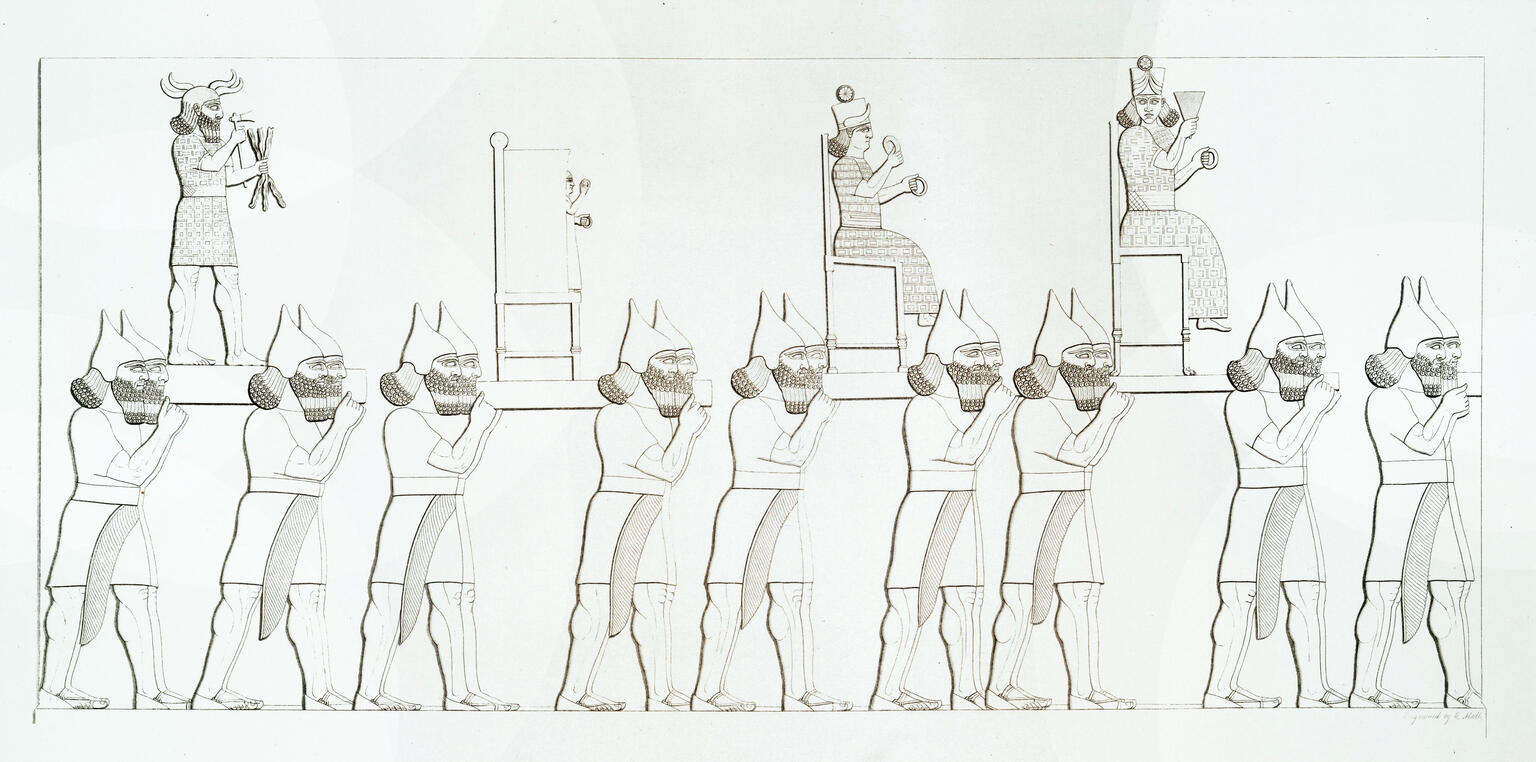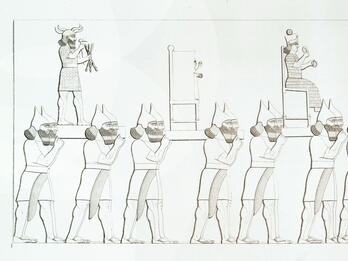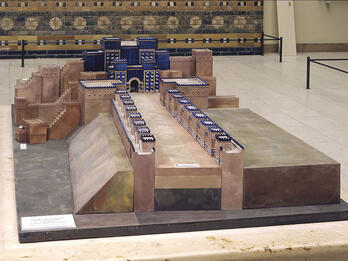Cult statues in Assyrian relief
Cult statues in Assyrian relief from the Palace of Tiglath-pileser III (reigned 745–727 BCE) in Kalhu/Calah (today’s Nimrud, Iraq). Although no Mesopotamian cult statues have been found, reliefs such as this one show what they looked like. Here, Assyrian soldiers carry statues of deities away from a defeated city. The drawing was made at the site by Austin Henry Layard, the archaeologist who found the relief. The association between military defeat and carrying off the victims’ cult statues is seen in Isaiah 46:1–2 and in the description of their restoration in the Cyrus Cylinder.
Credits
A. H. Layard, from The Monuments of Nineveh, (London: J. Murray, 1849), pl. 65. General Research Division, The New York Public Library. “Procession of the Gods.” New York Public Library Digital Collections. http://digitalcollections.nypl.org/items/510d47dc-476d-a3d9-e040-e00a18064a99.
Published in: The Posen Library of Jewish Culture and Civilization, vol. 1.





